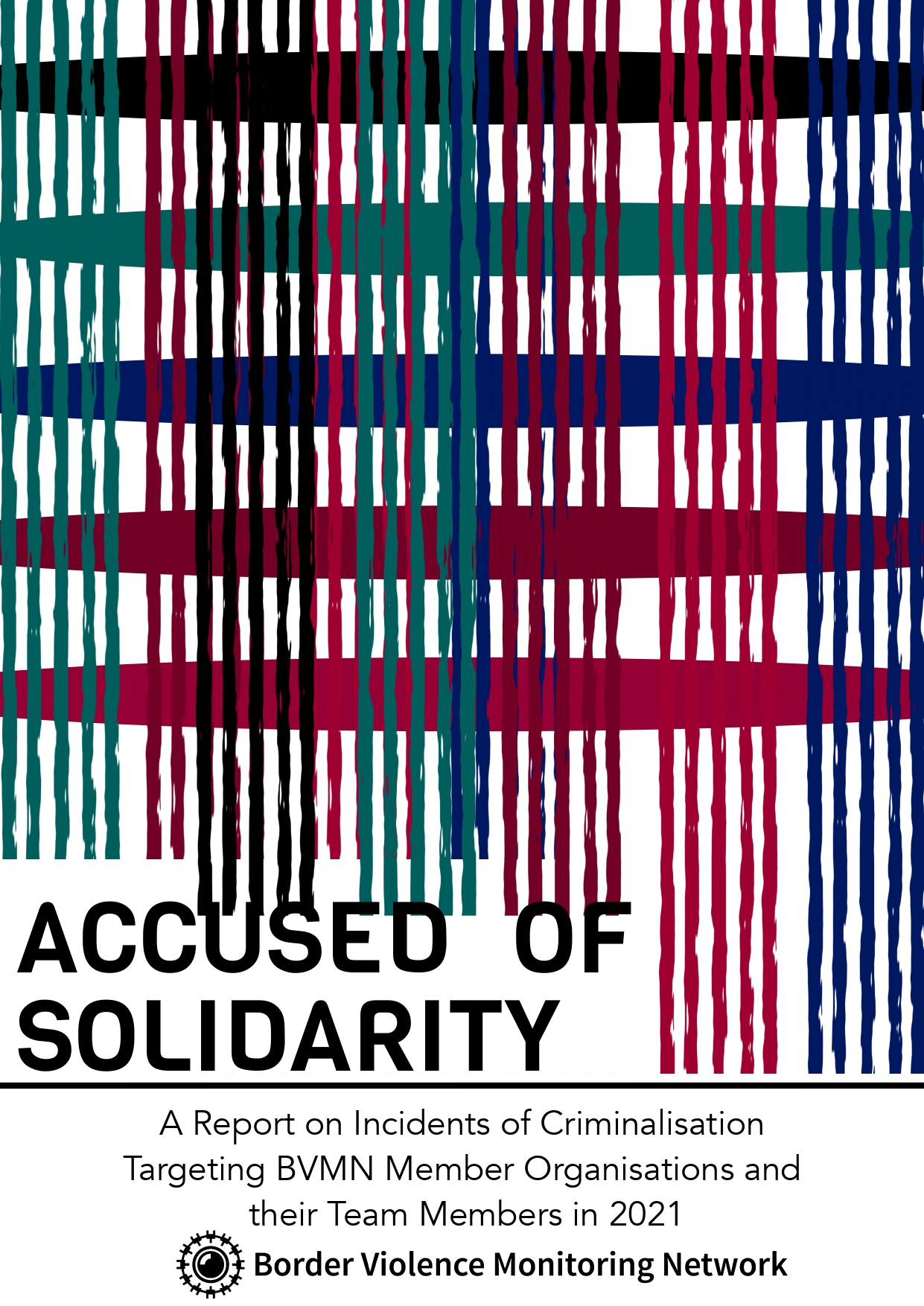This report documents cases of criminalisation attempts experienced by BVMN’s member organisations in several countries, mainly in the Western Balkans and Turkey in 2021. In order to contextualise these events, the report briefly introduces a definition of criminalisation, the political and legal environment, as well as relevant actors, and forms of criminalisation. In addition, it discusses the consequences of criminalisation for BVMN’s member organisations and incidents of criminalisation they were subject to, listed after the countries they are located in.
The report observes a trend of deterioration in the situations of CSOs and their team members due to such incidents. Different forms of criminalisation, namely formal and informal criminalisation, scrutiny, obstacles related to visa procurement, defamation in the media and smear campaigns, as well as threats, harassment, and violence had huge negative consequences for the contributing member and partner organisations of the Network.
BVMN and its member organisations are one of several CSOs working in an increasingly restrictive environment to support and monitor the fundamental human rights of people-on-the-move in the EU. Here, the restrictive legal environment for CSOs working in this sector is combined with increasing societal, administrative, and police pressure. This is no longer a country-specific phenomenon, but rather a European- wide trend that, in line with the EU’s externalisation policies on migration in general, extends well beyond its external borders.
This report was produced within the Border Violence Monitoring Network’s (BVMN) Internal Violence Working group. BVMN is a network of watchdog organizations active in Greece and the Western Balkans including No Name Kitchen, Rigardu, Are You Syrious, MobileInfoTeam, Push-back Alarm Austria, Josoor, InfoKolpa, Centre for Peace Studies, BlindSpots, Mare Liberum, Collective Aid, and Fresh Response. As such, this document was produced through joint collaboration of these groups.

